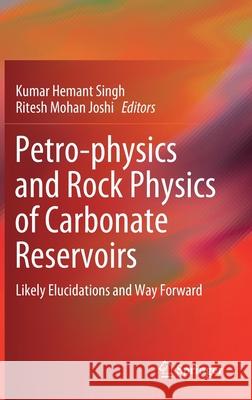Petro-Physics and Rock Physics of Carbonate Reservoirs: Likely Elucidations and Way Forward » książka
topmenu
Petro-Physics and Rock Physics of Carbonate Reservoirs: Likely Elucidations and Way Forward
ISBN-13: 9789811312106 / Angielski / Twarda / 2019 / 299 str.
This book presents selected articles from the workshop on "Challenges in Petrophysical Evaluation and Rock Physics Modeling of Carbonate Reservoirs" held at IIT Bombay in November 2017.











